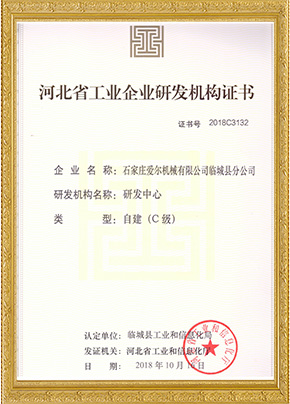Oct . 18, 2024 16:14 Back to list
Top Performers in Slurry Pump Technology for Optimal Quality and Efficiency
High-Quality Best Slurry Pumps A Comprehensive Guide
Slurry pumps play a crucial role in various industries, particularly in mining, construction, and wastewater treatment, where handling thick mixtures of liquids and solids is essential. The constant evolution of technology has led to the development of high-quality slurry pumps designed to deliver optimal performance, durability, and efficiency. In this article, we will explore the key features that define the best slurry pumps, their applications, and tips for selecting the right one for your needs.
What is a Slurry Pump?
A slurry pump is specifically designed to transport slurries, which are mixtures of solid particles suspended in a liquid. These pumps are capable of handling abrasive materials, viscous fluids, and varying particle sizes, making them indispensable in applications where conventional pumps would fail. Slurry pumps come in various configurations, including centrifugal, positive displacement, and submersible designs.
Key Features of High-Quality Slurry Pumps
1. Material Construction The best slurry pumps are constructed from durable materials that can withstand the harsh conditions associated with transporting abrasive materials. High-chrome cast iron, rubber linings, and stainless steel are commonly used materials, each offering unique advantages in terms of wear resistance, temperature tolerance, and corrosion resistance.
2. Pump Design Efficient hydraulic design is critical for high-quality slurry pumps. The design should minimize wear and tear, enhance self-priming capabilities, and provide optimal hydraulic performance. Features like wide impeller designs, large discharge openings, and adjustable wear parts are essential for achieving these goals.
3. Performance High-quality slurry pumps are engineered to deliver consistent performance under a wide range of operating conditions. Key performance metrics include flow rate, pressure, and efficiency. A quality pump should provide reliable, efficient operation while minimizing energy consumption.
4. Maintenance Easy maintenance and serviceability are vital characteristics of high-quality slurry pumps. Pumps with modular designs allow for quick replacement of worn-out parts, reducing downtime and maintenance costs. Regular maintenance schedules and user-friendly access to components contribute to the longevity of the pump.
5. Customization and Versatility The best slurry pumps can be customized to meet specific application requirements. Whether it is the need for specific pump sizes, connections, or additional features such as heating or cooling jackets, a quality slurry pump should be adaptable to a variety of settings.
Applications of Slurry Pumps
Slurry pumps are employed across numerous industries, each with unique requirements. Some primary applications include
high quality best slurry pump

- Mining and Mineral Processing In mining operations, slurry pumps transport crushed ores and tailings. They handle a wide range of materials, from fine particles to coarse aggregates, critical for mineral extraction.
- Construction Slurry pumps are used to transport cement slurry and other mixtures for construction projects. They can facilitate the removal of excavated materials and ensure that construction sites remain safe and efficient.
- Wastewater Treatment In municipal and industrial wastewater treatment facilities, slurry pumps convey wastewater sludge, which can be dense and viscous. Their efficiency in handling such materials is essential for maintaining overall system performance.
- Pulp and Paper Industry In this industry, slurry pumps transport wood chips and pulp, which can be abrasive and require specialized handling
.Selecting the Right Slurry Pump
When choosing a slurry pump, consider the following factors
1. Material Compatibility Ensure that the pump materials can handle the specific type of slurry you are working with, considering both abrasion and corrosion factors.
2. Flow Rate and Head Determine the required flow rate and head (the height the pump must lift the slurry) for your application to select a pump with the appropriate capacity.
3. Viscosity and Particle Size The viscosity of the slurry and the size of particles it contains will significantly influence the design and type of pump required.
4. Budget and Total Cost of Ownership While high-quality pumps may come with a higher upfront cost, consider their longevity, warranty, and maintenance requirements to evaluate the total cost of ownership.
In conclusion, high-quality slurry pumps are vital assets for industries that handle complex mixtures of solids and fluids. By understanding their key features, applications, and how to select the right pump, businesses can enhance efficiency, reduce costs, and improve operational performance. Investing in the best slurry pump is a strategic decision that pays off through improved reliability and productivity.
-
High Quality Slurry Pump Seals Reliable China Suppliers & Manufacturers
NewsJun.24,2025
-
High Quality Portable Submersible Slurry Pump Supplier & Manufacturer from China
NewsJun.10,2025
-
Slurry Pump Parts Manufacturer – High Quality Rubber Spare Parts from China
NewsJun.10,2025
-
High Quality 1/3 HP Submersible Sump Pump with Vertical - Reliable Supplier & Factory Price
NewsJun.10,2025
-
High-Efficiency Centrifugal Slurry Pumps India
NewsJun.10,2025
-
High Quality Warman Centrifugal Slurry Pump Suppliers & Factory
NewsJun.10,2025
